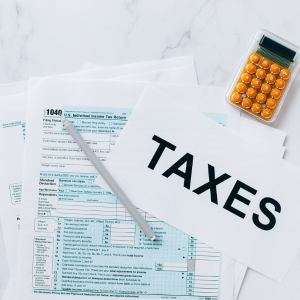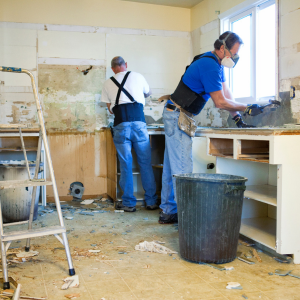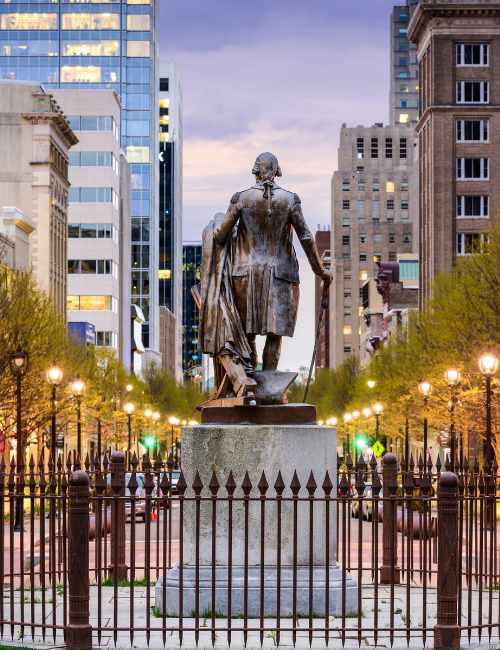
Tax Implications of Real Estate Transactions in North Carolina
When you sell a house in Raleigh, NC, you need to know exactly how the taxes will affect you. If a North Carolina homeowner sells their home and makes a profit, they may have to pay capital gains tax on that profit unless they meet certain exemptions. One very common is the main residence exclusion, which lets you avoid up to $250,000 in gains if you are filing as a single person or up to $500,000 if you are married and filing jointly, as long as you meet certain residency requirements.
On top of federal taxes, sellers should also factor in potential state and local transfer taxes, which can vary from county to county and are often overlooked during preparation. Partnering with a tax expert or a real estate professional familiar with the Raleigh market can help you identify exactly which taxes apply and uncover any possible exemptions. Being fully prepared for closing reduces surprises and gives you more control over your finances. Fair Cash Offers For Homes buys houses for cash, so if you’re looking for a quick, hassle-free sale, we can help—contact us today.
Understanding Capital Gains Taxes When Selling Property in Raleigh, Nc
If you’re selling a home in Raleigh, capital gains taxes are something you can’t afford to ignore. For these taxes, the difference between the price you sold your home for and your “adjusted basis” (which includes the price you paid for it when you first bought it and the cost of any changes you made over time) is used.
Fortunately, many sellers in North Carolina may qualify for the capital gains tax exclusion. If the home was your primary residence for two of the last five years, you could exclude up to $250,000 of profit if single, or $500,000 if married and filing jointly. To take full advantage, be sure to keep detailed records of any renovations or upgrades. Consulting with a realtor or tax advisor who understands local tax law can help you apply the correct exemptions and avoid overpaying.
How Property Location Affects Taxation for Home Sellers in Nc
In Raleigh, the exact location of your property can have a surprising impact on your tax bill. Different counties and municipalities in North Carolina may have varying property tax rates or transfer fees, meaning your tax liability might not be the same as a seller just a few miles away.
If you’ve lived in the home long enough, you may still qualify for the primary residence exclusion, but other location-specific taxes can chip away at your profits. Rising home values in certain Raleigh neighborhoods could also mean larger capital gains—and more taxes owed. Understanding how your area is taxed can help you avoid surprises. It’s smart to work with a realtor who knows the Raleigh area well, so you can factor in both location and tax policy as you prepare for your sale.
The Role of State and Federal Taxes in Raleigh Real Estate Sales
When you sell a house in Raleigh, you have to pay taxes at both the state and federal levels. North Carolina law says that people who sell their homes must report and pay taxes on the money they make, especially if there is a cash gain. If you live in a main residence, you may not have to report this income to the federal government if you meet certain conditions.
To figure out if you are eligible, you need to know how the IRS checks for ownership and use. Still, local property taxes might still be due while the house is being sold. You can make better plans if you know how the state, local, and federal levels all work together. If you don’t understand how the rules apply to you, a real estate professional or tax expert can explain what you need to do and how to lower your debt.
Calculating Your Tax Liability: Selling a House in Raleigh, Nc

When you sell your house in Raleigh, your tax liability starts with calculating your capital gains. This means subtracting your home’s original purchase price and any qualifying improvements from the final sale price. That difference is your gain, and it may be taxed unless you qualify for the capital gains exclusion.
You might be able to exclude up to $250,000 or $500,000 if the home was your main house for at least two of the last five years. This depends on how you filed your taxes. Still, North Carolina has its own tax rules that may change how much you owe overall. Keeping good records of costs and improvements can help you lower your taxable gain and raise your adjusted basis.
To be sure everything is done right, you might want to work with a real estate professional or tax advisor in Raleigh who knows both state and federal laws. It can help you get ready correctly and avoid making mistakes that cost a lot of money when you close.
Exemptions and Deductions for Home Sellers in North Carolina
Selling a house in Raleigh comes with a few tax advantages—if you know where to look. One of the biggest benefits is the capital gains tax exemption, which allows you to exclude up to $250,000 in profit if you’re single, or $500,000 if married filing jointly. To qualify, you must have used the home as your primary residence for at least two of the past five years.
You might also be able to write off some of the costs of selling the item. Some examples are real estate professional commissions, attorney fees, and even the cost of selling the sale. North Carolina also splits the buyer’s and seller’s property taxes at close, which changes your final numbers. Keeping receipts and thorough records of all the changes you make to your home can help you raise your adjusted basis and lower any gain that might be taxed. A real estate professional who knows their stuff can help you figure out which deductions apply to your case.
If you’re looking for a faster, simpler option, we are cash home buyers in Hillsborough and can help you sell your property without the usual delays or expenses—contact us today to get started.
Impact of Home Improvements on Capital Gains Taxes in Raleigh, Nc

Home improvements can do more than just boost your home’s value—they can also reduce your tax bill. When you sell your home in Raleigh, capital gains are calculated by subtracting your adjusted basis from the final sale price. Your basis includes the original purchase price plus the cost of qualified improvements like kitchen remodels, bathroom upgrades, or energy-efficient upgrades.
These changes can help lower your taxed profit by raising the adjusted basis. For that reason, it’s important to keep careful records and papers for all home improvements. In Raleigh’s tough and rising real estate market, making smart home improvements can help you save a lot on capital gains tax. That plus help from a nearby real estate professional or tax expert will put you in a better position when it’s time to file.
Legal Requirements for Reporting Home Sale Proceeds to the Irs
Selling a home in Raleigh doesn’t end at closing—you also need to handle the tax paperwork properly. The IRS requires homeowners to report any capital gains from the sale of their property. This involves determining your adjusted basis by factoring in the original purchase price, eligible improvements, and any depreciation if the home was ever used as a rental.
The gain or loss must be reported on Schedule D of Form 1040. If the home was your primary residence for two of the past five years, you might be eligible to exclude up to $250,000—or $500,000 for married couples filing jointly. That said, you still need to report the sale, even if no tax is owed.
Working with a tax expert who knows about home sales and keeping your paperwork in order can help you stay in line and get the most out of your allowances. It’s an important step for a smooth tax season after the sale.
Differences Between Primary Residence and Investment Property Sales Tax
Not all home sales are taxed the same way. If you’re selling your primary residence in Raleigh, you may qualify for a capital gains exclusion—up to $250,000 if you’re single, or $500,000 for married couples filing jointly. The key is that you must have lived in the home for at least two out of the last five years.
On the other hand, investment properties don’t offer that same benefit. Any profit from the sale is fully subject to capital gains tax, and you may also have to pay depreciation recapture tax if you claimed depreciation during the time you rented it out. That makes understanding the type of property you’re selling extremely important when planning for taxes.
A realtor familiar with Raleigh’s tax landscape can help you distinguish between the two and guide you through the reporting process, so you stay in compliance and optimize your return.
Filing Taxes After Selling a House: Key Steps for Raleigh Residents
When you’re done selling your Raleigh home, you need to make sure your taxes are done right. First, check to see if you can get a tax break on your capital gains. This is possible if you lived in the home as your main home for at least two of the last five years. You can leave out up to $250,000 in income if you file as a single person or up to $500,000 if you file as a married couple, if you qualify.
To calculate your capital gains, subtract your adjusted cost basis—which includes your purchase price and any improvements—from the sale price. You’ll also need to include state-level taxes if they apply in North Carolina. Don’t forget to report the transaction on your tax return, even if you don’t owe anything.
Keeping clear documentation of your home improvements and sale-related expenses is key. For peace of mind and accuracy, working with a Raleigh-based tax expert or real estate professional can help you complete this process smoothly.
Avoiding Common Tax Mistakes When Selling Your House in North Carolina
When selling a house in Raleigh, understanding your tax responsibilities is critical to avoiding costly missteps. One of the most overlooked areas is the capital gains tax, which can apply if your home has significantly increased in value since you purchased it. Even if you think you’re exempt, it’s important to confirm eligibility before assuming you owe nothing.
You must meet both the ownership and use tests in order to get a deduction of up to $250,000 (or $500,000 if you are married and file jointly). It is very important to keep careful records of all the changes you make, the money you spend, and any fees you incur linked to the sale. These can change your cost basis and lower your taxable gain.
Don’t forget that North Carolina may have its own tax rules, such as adjusted property taxes. Hiring a tax expert who knows the Raleigh rules is a good way to make sure you’re following all the rules and getting all the benefits you’re entitled to.
The 1031 Exchange: Deferring Taxes on Real Estate Transactions

For homeowners and investors in Raleigh, the 1031 exchange is a strategic tool worth exploring. This IRS-approved option allows you to defer capital gains taxes when you sell a property and reinvest the proceeds into another like-kind property. It’s especially valuable for those upgrading or diversifying their portfolios.
Knowing how a 1031 swap works can make a big difference in your finances in Raleigh’s busy market. You have to find a new home within 45 days and close on the old one within 180 days in order to qualify. If you miss those dates, the exchange may not be valid and you may have to pay taxes right away.
Because the rules are strict, many sellers consult professionals experienced in North Carolina’s real estate tax laws to manage the process. With careful planning, the 1031 exchange can be a powerful strategy for long-term wealth building while minimizing taxes.
How Long to Live in Your House to Qualify for Capital Gains Exemption
Raleigh homeowners planning to sell should pay close attention to the capital gains tax exemption rules. To claim the exclusion—up to $250,000 for single filers and $500,000 for married couples—you must have used the home as your primary residence for at least two out of the last five years.
These years don’t have to be consecutive, which offers some flexibility for those who’ve moved in and out of the property. But the IRS rules are firm: without meeting the residency requirement, you may owe capital gains tax on your profit.
Also, if you’ve claimed this exclusion on another property within the past two years, you won’t be able to use it again for your current home. You may also lose part of the benefit if you’ve made major improvements but didn’t live in the home full-time, which could affect your eligibility. By understanding these IRS rules before putting your home on the market, you can make smarter decisions and prepare for tax season with fewer surprises. We buy houses in North Carolina, so if you’re looking for a quick and hassle-free sale, we can help you move forward faster
Hiring a Tax Professional: When to Seek Help with Home Sale Taxes
Selling a home in Raleigh comes with more tax responsibilities than most expect. A tax professional can help you navigate exemptions, deductions, and reporting rules that apply specifically to North Carolina real estate transactions.
Whether you’re dealing with the adjusted cost basis, sale price adjustments, or the Section 121 capital gains exclusion, the guidance of an expert can help ensure your filings are accurate. Mistakes in any of these areas could result in unexpected taxes or even penalties.
Hiring a professional is especially helpful if you’ve made significant home improvements, rented out the property, or owned it jointly. They can provide insight on timing your sale strategically, document everything correctly, and minimize your tax burden in line with both state and federal law..
Understanding the Role of Property Value Assessment in Raleigh Sales
Property value assessments play a critical role in the sale of a home in Raleigh. These evaluations help determine your home’s taxable value and can directly impact your capital gains tax calculations. Knowing how your assessed value was determined allows you to estimate your obligations more accurately.
Local assessors in Raleigh consider factors like neighborhood trends, lot size, and overall property condition. This information is used not just for property taxes, but also to help set expectations when listing your home. The higher your home’s value climbs, the more attention you should pay to your potential gain and how to offset it.
Keeping up with changes in local tax laws and assessment practices will put you in a better position to prepare financially before and after your sale. Staying informed helps avoid surprises during tax season.
Estate Planning Considerations When Selling Family Homes
When it comes to selling a family home in Raleigh, estate planning becomes a key part of the conversation. Homeowners need to factor in capital gains tax exposure, especially when passing property to heirs or downsizing for retirement.
If the home was a primary residence, you might qualify for exclusions, but the rules get more complex when the property is held in trust or shared by multiple owners. Understanding how ownership structure impacts taxation is essential for accurate planning.
You’ll also want to plan how the proceeds will be used or distributed. Whether funding retirement or gifting to family members, these decisions affect your tax outlook. A qualified estate planner or tax professional familiar with North Carolina laws can help ensure your financial legacy remains intact.
Exploring Local Tax Incentives Available to Raleigh Home Sellers
Raleigh homeowners have access to several local tax advantages when selling their property. One of the biggest is the capital gains tax exclusion, which provides significant relief for those who’ve used the home as their primary residence for two out of the past five years.
Beyond that, Raleigh offers relatively low property tax rates compared to other major cities, which can ease the cost burden for sellers. This favorable structure, combined with select deductions for energy-efficient improvements or renovations, makes it worth investigating local incentive programs.
By understanding these tax breaks and working with a real estate professional who knows Raleigh’s market, sellers can potentially reduce out-of-pocket costs and improve their overall return.
Preparing Financially for the Hidden Costs of Selling a House
Selling a home in Raleigh involves more than just listing it on the market—it requires careful financial planning. Among the most overlooked expenses are tax obligations and closing costs, which can quickly eat into your profit.
Even if you qualify for a capital gains tax exclusion, you’ll still face costs like repairs, commissions, and legal fees. Closing costs typically run between 2% and 5% of your home’s sale price and may include items like title insurance, prorated property taxes, and loan payoff fees.
Reviewing these costs in advance gives you the insight needed to make informed pricing decisions and avoid surprises. Partnering with a real estate professional who can walk you through the expected expenses ensures you’re well-prepared for a smoother, less stressful closing process. At Fair Cash Offers For Homes, we buy houses for cash, making it easier for you to skip many of the typical selling hassles and move forward quickly.
What Taxes Do You Pay When You Sell a House in North Carolina?
When you sell your house in Raleigh, you’ll be responsible for several types of taxes. North Carolina imposes an excise tax, also known as a deed stamp tax, which is calculated at $1 per $500 of the sale price. This tax is typically paid by the seller at closing.
Some counties and municipalities may also add local transfer taxes, depending on location. These taxes are in addition to potential capital gains taxes, which apply if the home appreciated significantly and you don’t qualify for the exclusion under IRS Section 121.
Consulting with a real estate professional or tax advisor familiar with Raleigh’s regulations will ensure you’re aware of every applicable tax and that nothing slips through the cracks at closing.
How to Avoid Capital Gains Tax When Selling a House in Nc?
Minimizing or avoiding capital gains tax is a goal for many Raleigh homeowners when selling. One of the most effective ways is by qualifying for the primary residence exclusion, which exempts up to $250,000 for single filers or $500,000 for married couples if you meet the two-out-of-five-year rule.
Other strategies include timing the sale to ensure long-term ownership, since long-term capital gains are taxed at lower rates. Some sellers may also opt for a 1031 exchange—although typically used for investment properties—as a way to reinvest and defer taxes.
No matter your approach, keeping accurate records of home improvements and expenses is key. A tax expert who understands North Carolina law can walk you through the best options for your specific situation.
Who Pays Real Estate Transfer Tax in Nc?
In North Carolina, the real estate transfer tax—often called excise tax—is generally paid by the seller. This tax is calculated at a rate of $1 for every $500 of the property’s sale price and is due at the time of closing.
While this is the state’s standard practice, some transactions may involve negotiated terms where buyers and sellers share the cost. However, sellers should be prepared to include this amount in their closing expenses unless otherwise agreed upon.
To ensure there are no surprises, it’s best to consult with a realtor or real estate attorney familiar with Raleigh’s practices. Understanding your obligations upfront helps prevent last-minute financial hiccups.
How to Avoid Paying Taxes When You Sell a Home?
If you’re selling your home in Raleigh, there are legal ways to avoid or reduce the taxes owed on your profit. The most common is the IRS’s primary residence exclusion, which lets you exempt up to $250,000 in gains if single or $500,000 if married filing jointly—provided you’ve lived in the home for at least two of the past five years.
Another strategy involves adjusting your cost basis by including eligible home improvements. These costs can lower your taxable profit significantly. Timing also matters—waiting until you meet the full ownership and use test can ensure full eligibility.
Finally, always work with a tax professional who understands North Carolina’s real estate laws. With proper documentation and smart timing, you may be able to reduce or even eliminate the taxes owed when you sell your Raleigh home.
Helpful Raleigh Blog Articles
● Selling An Inherited House In Raleigh, NC
● Sell A Foreclosed Home In Raleigh, NC
● Selling Your Raleigh, NC, Home In Poor Condition
● Sell A Fire-Damaged House In Raleigh, NC
● Cost To Sell A House In Raleigh, NC
● Selling A Fixer-upper Home In Raleigh, NC
● Tax Responsibilities When Selling A House In Raleigh, NC
● Can You Sell a House with a Lien in Raleigh, NC
● How Long After an Appraisal Can You Close in Raleigh, NC
● Can the Executor of a Will Sell Property in Raleigh, NC?
● Best Things to Do in Raleigh, NC, With Kids
● Free Things to Do in Raleigh, NC

| LEVIED | TAR HEEL STATE | DEEDS | HOMELIGHT | REGISTER OF DEEDS | LENDERS |
| REALTOR | REAL ESTATE AGENTS | PREMIUM | INSURANCE | INSURANCE PREMIUMS | TITLE INSURANCE |
| TITLE COMPANY | REVENUE STAMPS | INTEREST | HOMEOWNERS ASSOCIATION | HOA | ESTATE AGENTS |
| ESCROW | ESCROW ACCOUNT | ASSET | APPRAISAL | PAYMENT | PROPERTY OWNERSHIP |
| U.S. | AMERICA | TITLE SEARCH | TAX BRACKET | HOMEBUYERS | THE NATIONAL ASSOCIATION OF REALTORS |
| NAR | INSPECTION | NORTH CAROLINA THE | CAPITAL GAINS ARE | IN NORTH CAROLINA THE | HOME IN NORTH CAROLINA |
